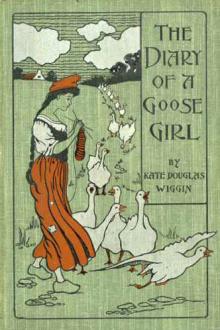The Arabian Nights - - (inspirational books to read txt) 📗

- Author: -
- Performer: -
Book online «The Arabian Nights - - (inspirational books to read txt) 📗». Author -
Three or four days after the funeral, Ali Baba removed his few goods openly to the widow's house; but the money he had taken from the robbers he conveyed thither by night: soon after the marriage with his sister-in-law was published, and as these marriages are common in the Mussulman religion, nobody was surprised. As for Cassim's warehouse, Ali Baba gave it to his own eldest son, promising that if he managed it well, he would soon give him a fortune to marry very advantageously according to his situation.
Let us now leave Ali Baba to enjoy the beginning of his good fortune, and return to the forty robbers. They came again at the appointed time to visit their retreat in the forest; but great was their surprise to find Cassim's body taken away, with some of their bags of gold. "We are certainly discovered," said the captain, "and if we do not speedily apply some remedy, shall gradually lose all the riches which we have, with so much pains and danger, been so many years amassing together. All that we can think of the loss which we have sustained is, that the thief whom we surprised had the secret of opening the door, and we arrived luckily as he was coming out: but his body being removed, and with it some of our money, plainly shows that he had an accomplice; and as it is likely that there were but two who had discovered our secret, and one has been caught, we must look narrowly after the other. What say you, my lads?" All the robbers thought the captain's proposal so advisable, that they unanimously approved of it, and agreed that they must lay all other enterprises aside, to follow this closely, and not give it up till they had succeeded.
"I expected no less," said the captain, "from your fidelity: but, first of all, one of you who is artful, and enterprising, must go into the town disguised as a traveller, to try if he can hear any talk of the strange death of the man whom we have killed, as he deserved; and endeavour to find out who he was, and where he lived. This is a matter of the first importance for us to ascertain, that we may do nothing which we may have reason to repent of, by discovering ourselves in a country where we have lived so long unknown. But to warn him who shall take upon himself this commission, and to prevent our being deceived by his giving us a false report, I ask you all, if you do not think that in case of treachery, or even error of judgment, he should suffer death?" Without waiting for the suffrages of his companions, one of the robbers started up, and said: "I submit to this condition, and think it an honour to expose my life, by taking the commission upon me; but remember, at least, if I do not succeed, that I neither wanted courage nor good will to serve the troop." After this robber had received great commendations from the captain, he disguised himself, and taking his leave of the troop that night, went into the town just at daybreak; and walked up and down, till accidentally he came to Baba Mustapha's stall, which was always open before any of the shops.
Baba Mustapha was seated with an awl in his hand, just going to work. The robber saluted him, bidding him good morrow; and perceiving that he was old, said: "Honest man, you begin to work very early: is it possible that one of your age can see so well? I question, even if it were somewhat lighter, whether you could see to stitch."
"Certainly," replied Baba Mustapha, "you must be a stranger, and do not know me; for old as I am, I have extraordinarily good eyes; and you will not doubt it when I tell you that I sewed a dead body together in a place where I had not so much light as I have now." The robber was overjoyed to think that he had addressed himself, at his first coming into the town, to a man who in all probability could give him the intelligence he wanted. "A dead body!" replied he with affected amazement. "What could you sew up a dead body for? You mean you sewed up his winding-sheet." "No, no," answered Baba Mustapha, "I perceive your meaning; you want to have me speak out, but you shall know no more." The robber wanted no farther assurance to be persuaded that he had discovered what he sought. He pulled out a piece of gold, and putting it into Baba Mustapha's hand, said to him: "I do not want to learn your secret, though I can assure you I would not divulge it, if you trusted me with it; the only thing which I desire of you is, to do me the favour to shew me the house where you stitched up the dead body."
"If I were disposed to do you that favour," replied Baba Mustapha, holding the money in his hand, ready to return it, "I assure you I cannot. I was taken to a certain place, where I was blinded, I was then led to the house, and afterward brought back again in the same manner; you see, therefore, the impossibility of my doing what you desire."
"Well," replied the robber, "you may, however, remember a little of the way that you were led blindfolded. Come, let me blind your eyes at the same place. We will walk together; perhaps you may recognise some part; and as everybody ought to be paid for his trouble, there is another piece of gold for you; gratify me in what I ask you." So saying, he put another piece of gold into his hand.
The two pieces of gold were great temptations to Baba Mustapha. He looked at them a long time in his hand, without saying a word, thinking with himself what he should do; but at last he pulled out his purse, and put them in. "I cannot assure you," said he to the robber, "that I can remember the way exactly; but since you desire, I will try what I can do." At these words Baba Mustapha rose up, to the great joy of the robber, and without shutting his shop, where he had nothing valuable to lose, he led the robber to the place where Morgiana had bound his eyes. "It was here," said Baba Mustapha, "I was blindfolded; and I turned as you see me." The robber, who had his handkerchief ready, tied it over his eyes, walked by him till he stopped, partly leading, and partly guided by him. "I think," said Baba Mustapha, "I went no farther," and he had now stopped directly at Cassim's house, where Ali Baba then lived. The thief, before he pulled off the band, marked the door with a piece of chalk, which he had ready in his hand; and then asked him if he knew whose house that was; to which Baba Mustapha replied, that as he did not live in that neighbourhood he could not tell. The robber, finding he could discover no more from Baba Mustapha, thanked him for the trouble he had taken, and left him to go back to his stall, while he returned to the forest, persuaded that he should be very well received. A little after the robber and Baba Mustapha had parted, Morgiana went out of Ali Baba's house upon some errand, and upon her return, seeing the mark the robber had made, stopped to observe it. "What can be the meaning of this mark?" said she to herself. "Somebody intends my master no good: however, with whatever intention it was done, it is advisable to guard against the worst." Accordingly, she fetched a piece of chalk, and marked two or three doors on each side in the same manner, without saying a word to her master or mistress.
In the meantime the thief rejoined his troop in the forest, and recounted to them his success. All the robbers listened to him with the utmost satisfaction; when the captain, after commending his diligence, addressing himself to them all, said: "Comrades, we have no time to lose: let us set off well armed; but that we may not excite any suspicion, let only one or two go into the town together, and join at our rendezvous, which shall be the great square. In the meantime, our comrade who brought us the good news, and I, will go and find out the house, that we may consult what had best be done."
This plan was approved of by all, and they were soon ready. They filed off in parties of two each, and got into the town without being in the least suspected. The captain, and he who had visited the town in the morning as spy, came in the last. He led the captain into the street where he had marked Ali Baba's residence; and when they came to the first of the houses which Morgiana had marked, he pointed it out. But the captain observed that the next door was chalked in the same manner: and shewing it to his guide, asked him which house it was, that, or the first? The guide was so confounded, that he knew not what answer to make; but still more puzzled, when he saw five or six houses similarly marked. He assured the captain, with an oath, that he had marked but one, and could not tell who had chalked the rest so that he could not distinguish the house which the cobbler had stopped at.
The captain, finding that their design had proved abortive, went directly to the place of rendezvous, and told the first of his troop whom he met that they had lost their labour, and must return to their cave. When the troop was all got together, the captain told them the reason of their returning; and presently the conductor was declared by all worthy of death. He condemned himself, acknowledging that he ought to have taken better precaution, and prepared to receive the stroke from him who was appointed to cut off his head. Another of the gang, who promised himself that he should succeed better, immediately presented himself, and his offer being accepted, he went and corrupted Baba Mustapha, as the other had done; and being shewn the house, marked it in a place more remote from sight, with red chalk.
Not long after, Morgiana, whose eyes nothing could escape, went out, and seeing the red chalk, and arguing with herself as she had done before, marked the other neighbours' houses in the same place and manner. The robber, at his return to his company, valued himself much on the precaution he had taken, which he looked upon as an infallible way of distinguishing Ali Baba's house from the others; and the captain and all of them thought it must succeed. They conveyed themselves into the town with the same precaution as before; but when the robber and his captain came to the street, they found the same difficulty: at which the captain was enraged, and the robber in as great confusion as his predecessor. Thus the captain and his troop were forced to retire a second time, and much more dissatisfied; while the unfortunate robber, who had been the





Comments (0)